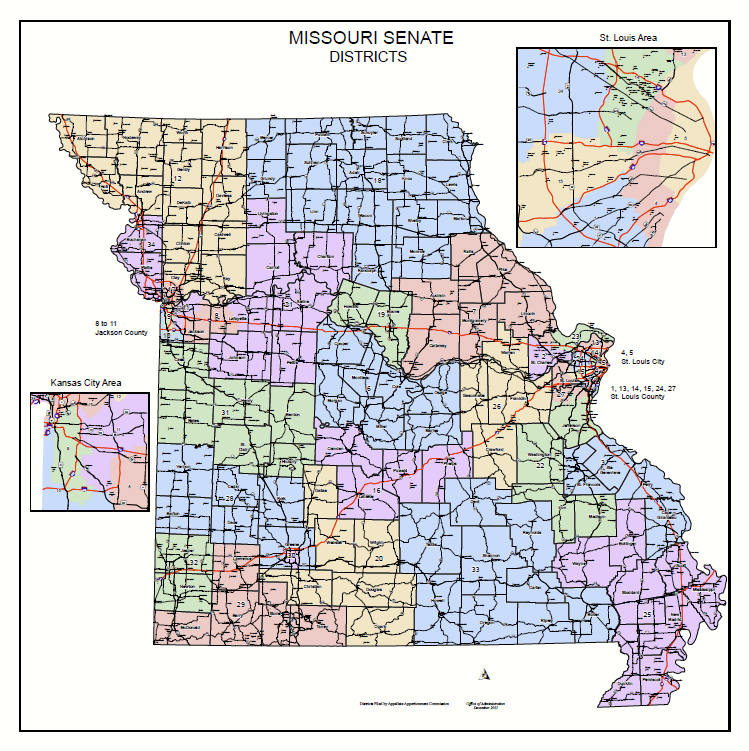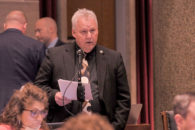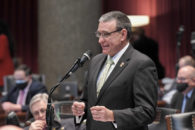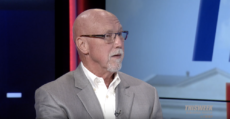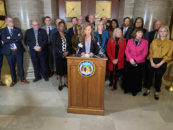As elected officials vacate Jefferson City and return to their families and jobs, The Missouri Times is bringing you updates on big initiatives that didn’t quite make it through before May 17. The “Next Steps” series will showcase progress made on certain legislative issues and offer a look ahead to what could come.
Missouri’s voter-approved redistricting process was specifically mentioned by the U.S. Supreme Court in both the majority and dissenting opinions. The different perspectives from the nation’s highest court on how the Show-Me State is addressing gerrymandering exemplifies the partisan debate taking place.
Last week, in a landmark decision, the U.S. Supreme Court determined federal judges have no authority to correct partisan gerrymandering, effectively kicking the issue to the states.
“Our conclusion does not condone excessive partisan gerrymandering. Nor does our conclusion condemn complaints about districting to echo into a void. The States, for example, are actively addressing the issue on a number of fronts,” Chief Justice Roberts wrote for the majority opinion, joined by Justices Clarence Thomas, Samuel Alito, Neil Gorsuch, and Brett Kavanaugh.
Pointing to Missouri, the majority opinion noted, “Voters there overwhelmingly approved the creation of a new position — state demographer — to draw state legislative district lines.”
But the dissenting opinion pointed out lawmakers have already made an attempt, albeit a failed one, at walking back changes initiated by citizen petition.
“But before the demographer had drawn a single line, Members of the state legislature had introduced a bill to start undoing the change,” wrote Justice Elena Kagan, joined by Ruth Bader Ginsburg, Stephen Breyer, and Sonia Sotomayor.
The redistricting process approved by voters in November 2018 requires a new “nonpartisan state demographer” to draw legislative maps for the state’s General Assembly. Under the so-called Clean Missouri Amendment, the maps will then be submitted to the existing bipartisan commissions for approval.
The process directs the demographer to consider “partisan fairness” and “competitiveness” when drawing districts.
So what’s next?
When lawmakers convened in Jefferson City for session, they made multiple attempts to walk back or alter the changes passed as part of an overachieving ethics reform. Ultimately, none of the proposed bills made it across the finish line.
The bill that made it the furthest, HJR 48 championed by Rep. Dean Plocher, would have put the redistricting back in the hands of a bipartisan commission and altered the priorities to be considered when drawing the maps. The proposal, which would have needed voter approval, passed the House but failed to get out of a Senate committee.
It is likely the measures will be back before the General Assembly in 2020.
“I think it is imperative that our districts be compact and contiguous, and we continue to say ‘communities matter’ rather than just a competitive spirit. I think competitiveness is great but you have to keep communities together first,” Plocher told The Missouri Times.
Those in support of Clean Missouri pushed back against proposed changes and promised to continue to do so in the future.
“The massive bipartisan coalition that fought for two years to pass redistricting and ethics reforms isn’t going to give up either,” Sean Soendker Nicholson, who helped pass Clean Missouri last year, told The Missouri Times.
The decision by the U.S. Supreme Court does not have an immediate impact on the ongoing redistricting debate in Missouri. Unless Congress decides to take action, how legislative maps are drawn will remain in the purview of the state without federal interference.
“It doesn’t have any impact on [Missouri’s] state legislative redistricting process at all,” said Nicholson.
But, according to Eddie Greim, a Kansas City attorney who filed an amicus brief in the Supreme Court case, it could have an impact down the road. He noted courts have ruled individual rights related to voting does not apply to partisan gerrymandering, though Clean Missouri gives those “group rights” to political parties.
“I think one interesting question after the opinion is, to what extent does this imposition of a group right by the Missouri Constitution violate individual rights to vote,” Greim told The Missouri Times. “I think it is less likely, although I can’t say for sure, a challenge to Clean Missouri itself would be cognizable just because of this ruling. I think it would have to be after districts are drawn.”

Alisha Shurr was a reporter for The Missouri Times and The Missouri Times Magazine. She joined The Missouri Times in January 2018 after working as a copy editor for her hometown newspaper in Southern Oregon. Alisha is a graduate of Kansas State University.

